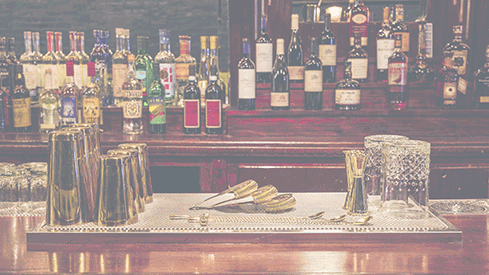
Sonny Boy Williamson was an American blues harmonica player, singer and songwriter who hit the airwaves and record players in the 1940s and 1950s. He laid down the template for British musicians swept up in the blues craze in the UK. In the 60s, he traveled to the UK and Europe, giving his fans a first hand taste of his authentic American blues. He played with Jimmy Page, and did albums with The Yardbirds and The Animals. His influence can be heard in artists like Led Zeppelin, The Who, Van Morrison, John Mayall, and others who have covered his songs. Sonny Boy made no less an impact on American artists, including the Allman Brothers Band, Aerosmith, The Doobie Brothers, Mike Bloomfield, Johnny Winters and many others. We are still listening to Sonny Boy Willamson II today.
 Sonny Boy Williamson II, Jimmy Rodgers, Muddy Waters
Sonny Boy Williamson II, Jimmy Rodgers, Muddy WatersSonny Boy’s beginnings are mostly unknown. No one knows exactly when he was born. Scholars have unearthed evidence that it was in 1912, but Sonny Boy claimed to have been born in 1899, perhaps to have an age advantage over John Lee Williamson (Sonny Boy Williamson I), the Tennessee-born Chicago bluesman who died in 1948. We do know that Sonny Boy II was born Alex (pronounced Aleck) Ford, on the Sara Jones Plantation in Tallahatchie County, Mississippi. He would later be known as Alex Miller, “Rice” Miller, and Little Boy Blue, before taking the name Sonny Boy Williamson. He also appears on the credits of Kirk in Copenhagen (1963) as “Big Skol.”

The son of a sharecropper, Alex began traveling around Mississippi and Arkansas in the 1930s, playing with Big Joe Williams, Elmore James, Robert Johnson (who reportedly died in his arms after drinking poisoned whiskey) and Robert Lockwood, Jr. In 1940, he was hired to play on the King Biscuit Time radio show on Helena, Arkansas’ KFFA. The host of that show started calling him Sonny Boy Williamson, probably to capitalize on the fame of the Chicago musician. Sonny Boy moved to West Memphis, AR, in 1949, and lived with his sister and her husband, Howlin’ Wolf. He had his own King Biscuit Time radio show on KWEM, and brought Elmore James, Houston Stackhouse, and other friends in to perform. B.B. King credits Sonny Boy for giving him his first break on that show, and setting up another gig for him that night. In the 50s and 60s, Sonny Boy recorded 8 albums, 32 singles and EPs, and 3 compilation albums on Trumpet, and then Chess Records. He toured the UK and Europe in the 60s, sporting a custom made two tone suit, bowler, umbrella and briefcase for his harmonicas and microphone.

The best known songs of Sonny Boy Williamson include“Don’t Start Me to Talkin’” “Eyesight to the Blind” “Bring It On Home” “One Way Out” “Nine Below Zero” “Help Me” “Your Funeral My Trial” and “Checkin’ Up On My Baby.” The Who incorporated “Eyesight to the Blind” into Tommy, the only song in the rock opera not written by the group. “One Way Out” is his re-working of the song by Elmore James, the same version made famous by the Allman Brothers Band.
Other covers of Sonny Boy Williamson songs include:
Muddy Waters, "Nine Below Zero"
Canned Heat, "Nine Below Zero" and "Help Me"
Junior Wells, "Help Me"
Howlin' Wolf, "Cool Disposition"
B.B. King, "Eyesight to the Blind"
Mose Allison, "Eyesight to the Blind"
John Mayall's Bluesbreakers, "Help Me", "Checkin' Up on My Baby"
Led Zeppelin, "Bring It On Home"
Van Morrison, "Take Your Hands Out of My Pocket", "Help Me"
Mike Bloomfield and Al Kooper, "One Way Out"
The Allman Brothers Band, "One Way Out"
New York Dolls, "Don't Start Me Talkin'"
Ten Years After ,"Help Me"
The Who, "Eyesight to the Blind"
Aerosmith, "Eyesight to the Blind"
Gary Moore, "Eyesight to the Blind", "Don't Start Me To Talkin'"
The Blues Brothers, "From the Bottom"
Lester Butler, "I Cross My Heart"
Rory Gallagher, "My Baby, She Left Me" and "Don't Start me Talkin"
Joe Bonamassa, "Your Funeral and My Trial"
Dr. Feelgood, "Checking Up on My Baby"
The Doobie Brothers, "Don't Start Me to Talkin'"
Joan Osborne, "Bring It on Home"
Johnny Winter, "Help Me"

Sonny Boy returned to the States and, in 1965, was tracked down by The Band, who was hanging around Levon Helm’s old stomping grounds in Arkansas. They spent a memorable day together, as described in The Last Waltz and an interview with Robbie Robertson, and made tentative plans to work together. When they called his agent a few weeks later, they learned that Sonny Boy had died in his sleep of an apparent heart attack.
